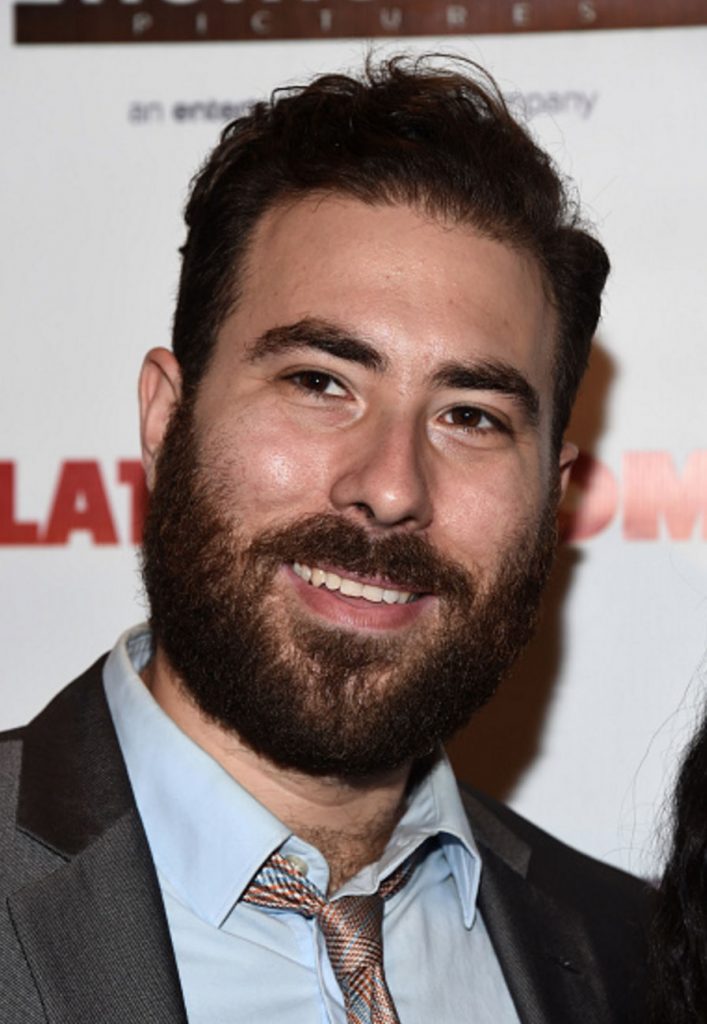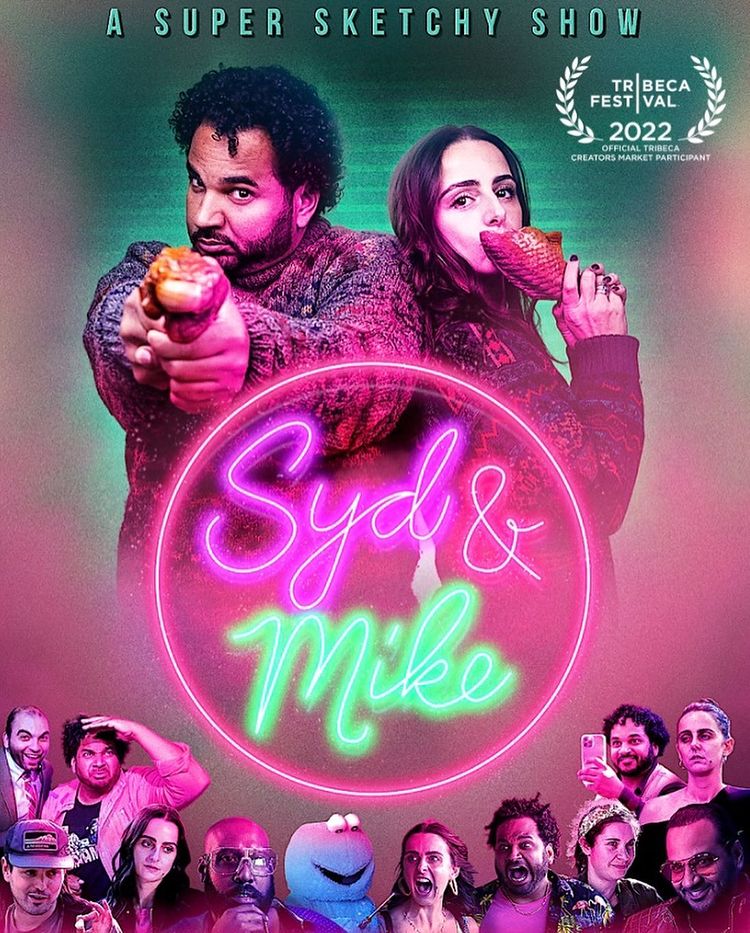The indépendant film and television space has a new player from the extremities of the outer realms. Sasha Nonas-Barnes is fifty percent of the composition of Dark Matter Entertainment. The remaining component is Tiegen Kosiak.
Dark Matter was formed by two seasoned development executives “used to creating projects with very few resources.” Choosing the name of their company was a deliberative process. “The name is built into the ethos of the company. Dark Matter is this unseen glue that holds the glue together,” said Nonas-Barnes. “It makes up some seventy percent of the universe. We can’t see it. We just know it’s there.” Said better than any Trekkie.
Sasha Nonas-Barnes lamented that, “Hollywood on focuses on a small percentage of stories. We’re looking for new stories from new sources we’ve not considered before. We want to hear new versions of old tales.” Basically, the company searches for stories in that dark matter.
To Indie Or Not To Indie?
Independent films are nuanced to define. Categorizing them ranges from their content to their financial mechanisms. Crudely speaking, independent films are lower budget and made outside the studio system. However, this distinction has blurred with the advent of big money people who can throw $15-20 million at a movie. There are instances of $20-30 million indie films that draw on resources that regular indies don’t have access to. But these high price tags come with strings and headaches more associated with the studio system.
Generally speaking, indie movies are allowed more creative freedom
“We’d like to find a balance between a true indie film that goes under the radar and mainstream movies. For us, it depends on the story. We try not to find pieces to fit. We see how pieces fit around a story in a way that speaks to us.”
Sasha is cognizant that it’s still a business. “We look for movies that can be made for under $2million.” When he goes broader into ‘Indie-stream’ territory he looks for the balance of fun, enjoyment, and a bit of a message.

Sasha Nonas-Barnes
“We don’t want to hit you over the head with a message, but we do consider what it’s examining. What is the commentary? What is the point of view? What is the meaning? What are the questions raised? regardless of whether they are answered,” he continued.
Nonas-Barnes cites Palm Springs as a film that captures the spirit of what Dark Matter Entertainment does. “It’s fun, thoughtful, smaller, and a little more contained that feels like a big idea.”
Ideally, Sasha would like at least one bad joke in each of his films and having the audience leave the theater scratching their heads. “I want my projects to stay with you so you can’t stop thinking about them.”
What’s So Funny?
He also has a desire for Oscar recognition for a true comedy, not a dark comedy… “Will Ferrell style that makes you scream laughing. Awards don’t typically recognize comedy. There’s so much emotion and raw dealing that comes from it and still be hilarious.”
Sasha feels that Netflix has hit a sweet spot with its current crop of romantic comedies that do well on the streaming circuit. On the other hand, big action “The Rock/Kevin Hart” movies do well at the box office. “Free Guy was one of the funniest movies I ever saw last year.”
He feels that the most successful comedy is on television right now. There is little space for the big screen $60 million comedies that once graced out screens. “You can also do smaller comedies, but they don’t translate very well globally.”
Good ideas are rather hard to come by. Nonas-Barnes joked that he comes up with many random ideas he likes best. Admittedly, most don’t amount to anything. “The best approach you generating ideas is sitting down with writers and asking them what speaks to them.”
A Life Before Film
Many newer writers have had other careers in the past, but their passion is film. Sasha Nonas-Barnes is a culinary king and keen photographer. “I worked in retail for years. I managed several Victoria’s Secret stores in New York for several years which led to Dark Matter.” During college, he worked on various in-house shows and realized his heart was also in storytelling.
“Working in retail gave me a perspective on managing large groups of people. You have all kinds of personalities, you liaise with different departments and executives. The biggest thing I learned about my own management style is that you can’t treat everyone the same way.“ These skills are remarkably similar to those required by a producer. “You have to make sure all your employees are happy and taken care of.”
Sasha also learned a lot about filmmaking by wrangling resources at culinary school. “The biggest lesson was don’t start this unless you’re financially ready to do it. Every penny needs to planned and accounted for.”
Nonas-Barnes believes making a film is like working in a restaurant. You make lists of the recipes and ingredients you need to prepare the menu. Writers call this an outline. Then you lay out the ingredients, chop them up, and cook them in order until you have a meal. Writers call this writing pages until the screenplay is finished. The garnishes and added herbs and spices are what make a meal special. That’s a writer’s voice. “What experiences are you trying to express? What energy are you feeling?” Then there are those dreaded rewrites. “You check the quiche and put it back in the oven for ten minutes if it’s not ready.”
When considering new projects, Sasha prefers screenplays are closer to being ready to be taken out. He will consider some development, but most of the heavy lifting (or writing) is up to the writer. He also prefers to consider scripts with no attachments.
Sasha has been fortunate enough to have worked with some industry heavyweights to guide his career. These include Michael Bay and Seth Rogen. “It showed how normal the big names in the industry are.” He felt this made it easier to navigate the industry. “Tiegen and I had the right experience, the right industry knowledge and the right connections to give us the confidence to start our own company.”
The face of entertainment is changing. These changes ranges from the cross-fertilisation of games, comics, podcasts, augmented and virtual and other digital content. Movie studios are increasingly being owned by technology and communications conglomerates. “Nobody really knows where this is going to end up in decades to come. When people are scared they go to familiar stories. This makes it a great time for experienced writers to sell more things and a more difficult time for newer writers to make their first sale.”
“In the long run, a changing environment is very good for writers because you have the opportunity to craft and create the next generation of stories that future generations of filmmakers will be modelling their stories.”
Hollywood is notoriously risk averse and reluctant to venture too far away from existing IP. Eventually this IP pool will become depleted so the industry will be forced to broaden its scope. “We are experiencing superhero fatigue.” However, audience tastes come in waves. Something that is popular now will lose its popularity and then become popular again in the future. “In the downward trend of clinging to well-known IP begins the upward trend of something else. Producers will look for new ways of developing stories.”
There is little doubt that the industry is bifurcating to the extremes – the middle is being squeezed out. “Buyers are attracted to smaller stories that are big ideas – indie films that give you a larger view of something bigger. Something like CODA.” Buyers have a sense of seeing something they haven’t seen before. “It can be a big experience – physical an emotional.”
Most indie films have the majority of their production funding secured before the cameras start rolling. It’s this funding which determines which films get made to a greater extent than who’s attached. “Everyone feels like they’ll make money before the film gets made regardless of the quality of the script. Sometimes you’re beholden to those who write the checks.“
